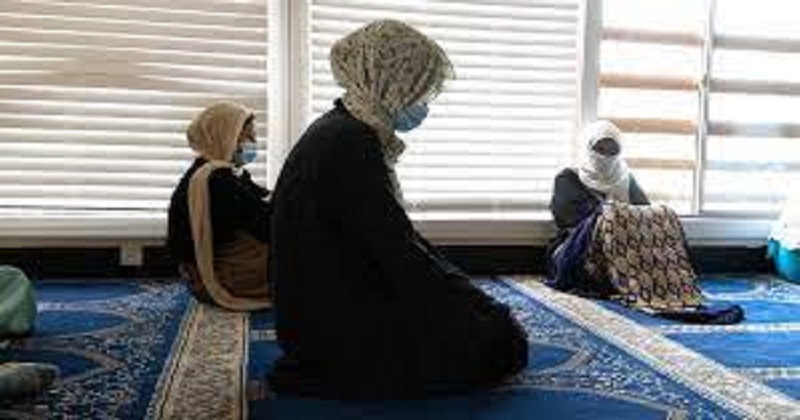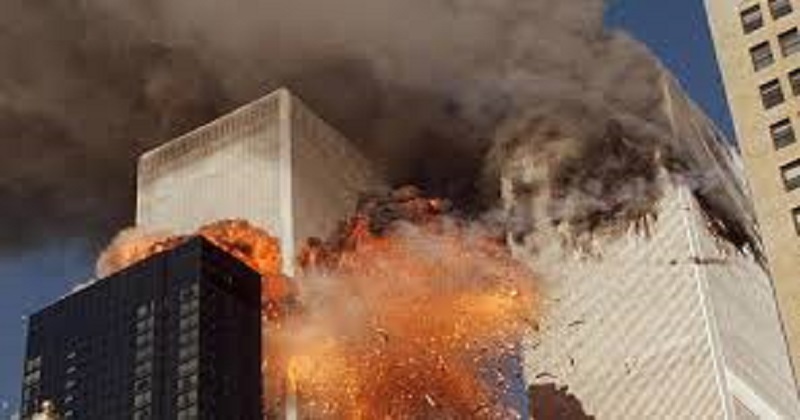
As a car passed, the driver rolled down his window and spat an epithet at two little girls wearing hijabs: ‘Terrorists!’ Shahana Hansif, 10, and her little sister went to the mosque from their Brooklyn home mere weeks after the twin towers at the World Trade Center fell. They fled, afraid and unsure.
As the 20th anniversary of the Sept. 11 terror attacks approaches, Hanif remembers the shock, the confusion over how anyone could look at her, a child, and see a threat. ‘It’s not a kind, nice word. Violence, danger’. Foreign media report that it is meant to shock whoever receives it. However, the incident also inspired a determination to speak out for herself and others that has helped her get to where she is today: a community organizer strongly favoured to win a seat on New York City Council in the upcoming municipal election.

Like Hanif, many young American Muslims were impacted by 9/11. Many Muslims have been harassed and surveilled, mistrust and suspicion have consumed them, and their American identity has been questioned. Moreover, they have found ways to fight back against bias, to organize and craft nuanced narratives about their identities. Along the way, they’ve built bridges, challenged stereotypes, and created new opportunities. Eman Abdelhadi, a sociologist at The University of Chicago who studies Muslim communities, says that being Muslim is an essential aspect of identity. One of the major effects was on the communities’ development. That’s one way it affected people’s lives.
Prior to the 9/11 anniversary, the AP-NORC Center for Public Affairs Research conducted a poll in which 53% of Americans held unfavorable views of Islam, compared with 42% who held favorable views. In contrast, most respondents viewed Christianity and Judaism favorably. 9/11 didn’t lead to distrust and suspicion of Muslims, but the attacks dramatically exacerbated them. Normally ignored or targeted by low-level harassment, the country’s diverse Muslim communities now find themselves at the center of attention, according to political scientist Youssef Chouhoud.
Hanif had no blueprint to navigate the complexities of that time. She later wrote in an essay about the aftermath of 9/11, ‘Fifth-grader me wasn’t naive or too young to know there were dangers for Muslims. Flashing an American flag from our first-floor windows didn’t make me more American. Born in Brooklyn didn’t make me more American’. Hanif and his friends gathered neighborhood friends and asked their older cousin for protection in a letter to then-President Bush. She says, ‘we knew we would become like warriors in this community’. Yet being a warrior carries a price, with wounds that linger. Ishaq Pathan, 26, remembers the time a boy asked him if he was planning on blowing up their Connecticut school. Upon returning to the United States after spending a college semester in Morocco, he recalls feeling helpless when he was taken aside for additional questioning at an airport.

Shukri Olow’s experience with that aftermath compelled her to run for office. Born in Somalia, Olow fled civil war with her family, lived in refugee camps in Kenya for years before coming to the United States as a ten-year-old. Her new home was a vibrant public housing complex in Kent, south of Seattle. Locals from different countries communicated across cultural and linguistic barriers, borrowing salt or watching each other’s children. 9/11 happened then. Almost half of American Muslims surveyed by Pew Research Center said they experienced religious discrimination within the previous year, but 49% said someone supported them because of their religion.
Most respondents in the survey are both proud to be American and Muslim. Growing up, some people, including Olow, had identity crises. Her experiences from that time also shaped her identity. She is now seeking a seat on the King County Council. As part of his efforts to spread knowledge about his faith and counter hate through dialogue, 39-year-old Mansoor Shams travels across the US holding a sign that says: ‘I’m Muslim and a US Marine, ask anything’.
Read more: The importance of going beyond ‘Say sorry’!’
As a Marine from 2000 to 2004, Shams was called ‘Taliban’, ‘terrorist’ and ‘Osama bin Laden’ by some of his peers after 9/11. He says one of his most memorable interactions took place at Liberty University in Virginia, where he spoke in 2019 to students at the Christian institution. Some still call him with questions about Islam, he says. According to him, there is a strong sense of mutual respect and love. Shams wishes that his current work was not needed, but he feels he must share a counternarrative which a great deal of the American population does not know.

Post Your Comments